By Beatrice Asamani Savage, GNA Special Correspondent, Israel
Sderot (Israel), Dec. 29, GNA – The Mayor of Sderot, Mr. Alon Davidi, has called for enduring peace amid the ongoing conflict with Hamas, lamenting the toll that years of terror have taken on his city and its residents.
The city, situated near the Gaza border, has endured over 20 years of attacks, leaving many families grappling with trauma and insecurity.
Mr. Davidi emphasised the urgent need for global understanding and concerted efforts to foster peace in the region.
“We gave up Gaza in the hope of peace, but instead, my children and the citizens of Sderot have suffered from relentless terror,” he said during a media engagement with African journalists visiting Israel.
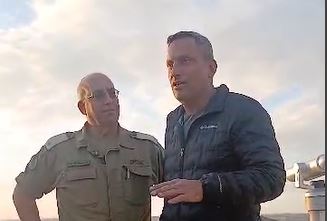
The mayor recounted the horrific events of October 7, when some 70 civilians in Sderot were murdered in attacks he described as inhumane.
He decried the actions of Hamas, accusing the group of misusing resources meant for Gaza’s development to build tunnels, amass weapons and prosecute a hate campaign against Israel.
“We want to raise our children in a normal life without terror,” Mr. Davidi said, adding that peace could only be achieved when the ideology of hate propagated by terror groups was replaced with a sense of shared humanity.
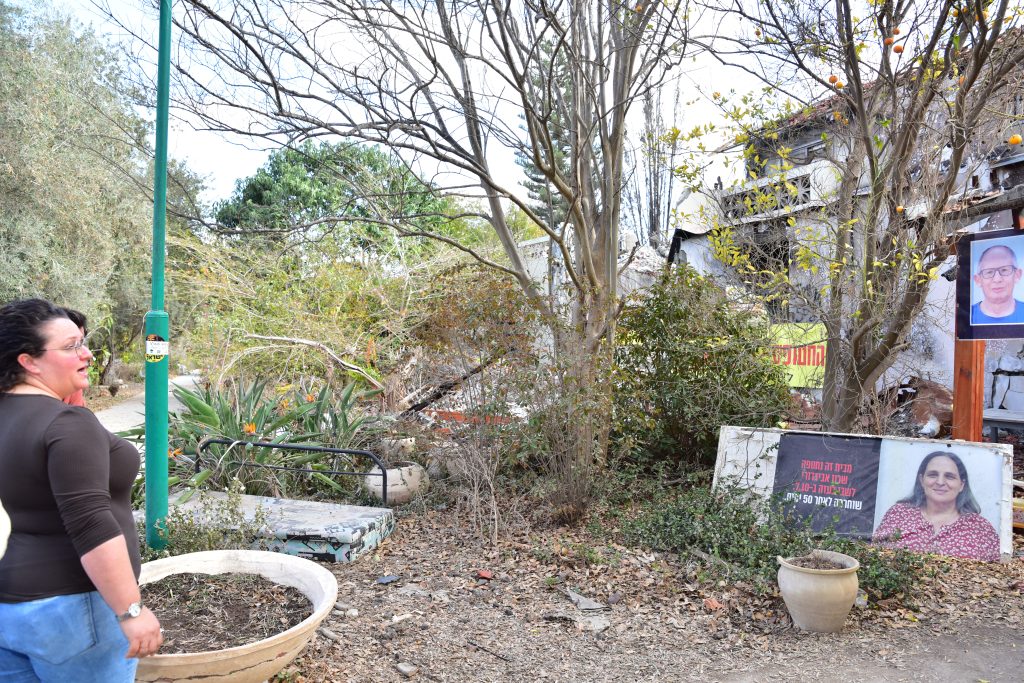
The mayor highlighted the psychological toll of the violence, revealing that three of his seven children suffered from Post-Traumatic stress disorder (PTSD).
He noted that many teenagers in Sderot remained confined to their homes out of fear, with families breaking down under the strain of unending attacks.
Despite the challenges, Mr. Davidi expressed hope for a future where peace could prevail, insisting that Israel’s actions were not those of aggression but of self-defence and survival.
“We are not the bad guys,” he said, adding that Hamas’ October 7 attacks that left 1200 in Israel massacred and 251 abducted happened during a ceasefire regime.
“We want peace with everyone and a world free from terror”
Ms Ayelet Shmuel, Director of the International Resilience Center, Sderot, briefed journalists on efforts to assist victims to resume their normal lives.
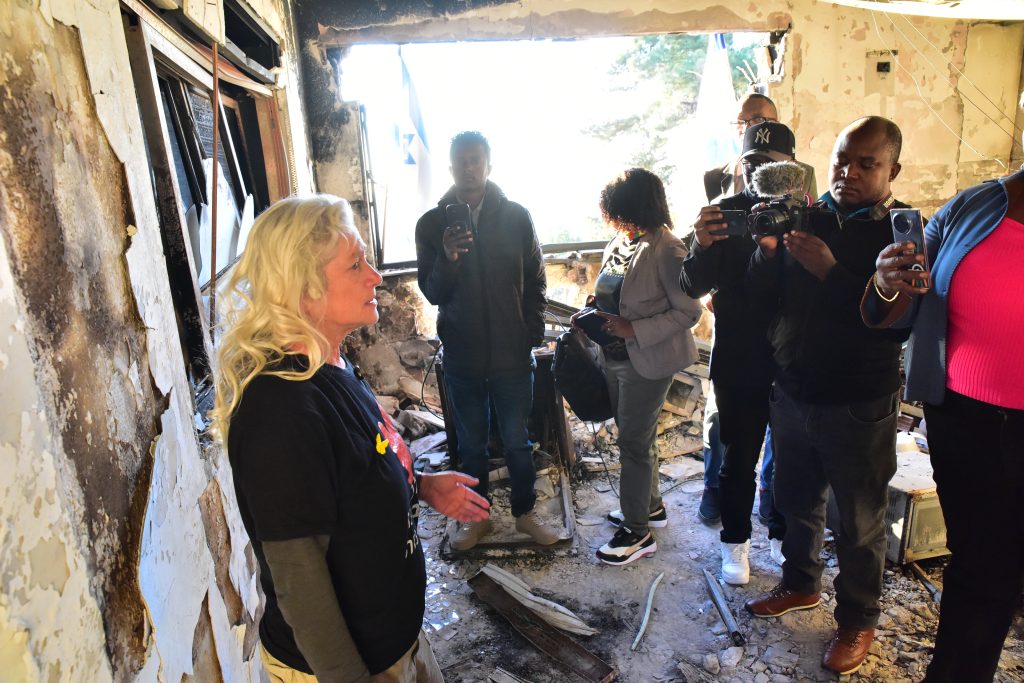
More than 350 volunteering therapists were involved, using different kinds of approaches, she noted.
“They’re showing incredible resilience. And this is really the story of the city that has been under fire for 20-something years.”
The journalists also toured Kibbutz Be’eri, near Gaza strip, where the some 300 Hamas militants massacred some 101 civilians and took 32 hostages into Gaza.
During the 24-hour battle with the militants, 31 security personnel were killed.
They included 23 soldiers of the Israeli Defence Forces, members of the civilian rapid response team and eight officers of the Israel Police.
A survivor of the attack, Ms Ella, recounted the harrowing experience of hours in the shelter of her home with her husband, three young children and their dog.
It was, terrifying and traumatic, she said as the attackers broke into home and fired all sorts of sophisticated weapons in the neighbourhood.
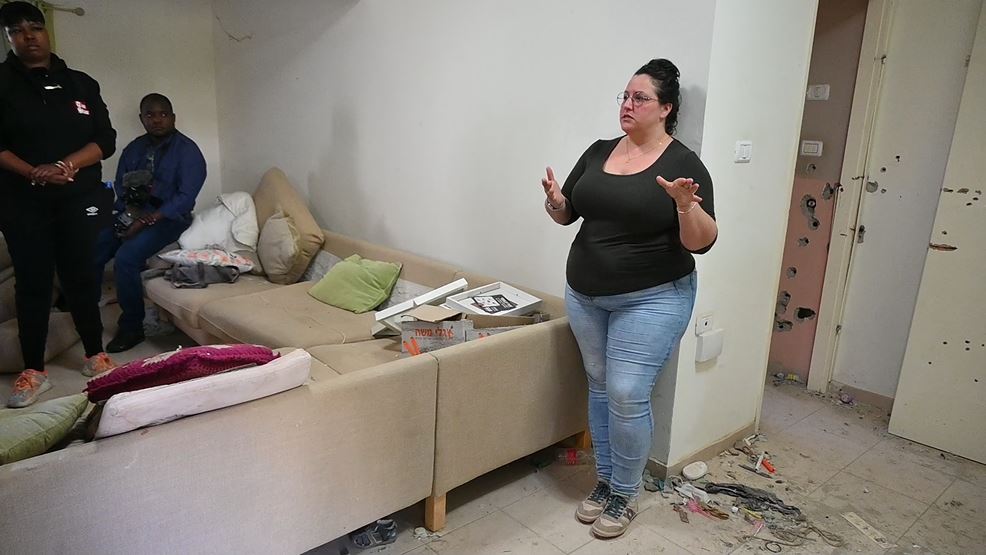
Meanwhile, the residents of Manara Kibbutz on the Israel-Lebanon border, also continue to grapple with trauma and displacement months after a Hezbollah attack, said Ms Orna Weinberg, a member of the affected community.
She, however, emphasised the resilience of the kibbutz despite the emotional and physical toll the attack has had on their lives.
Ms Weinberg shared that the once-thriving community of 260 people was forced to evacuate following the attack, on October 8, 2023, with many families scattered across Israel.
She described the psychological devastation of being uprooted from their homes, particularly, for the elderly, some of whom had since passed away due to the stress of displacement.
Taking the journalists on a tour of the burnt houses in the Kibbutz, Ms Weinberg recounted how her family, spanning four generations, was evacuated after their home was struck.
“This is the only home I ever had, and I can’t leave it,” she said. “But after my house was hit, I was forced to leave.”
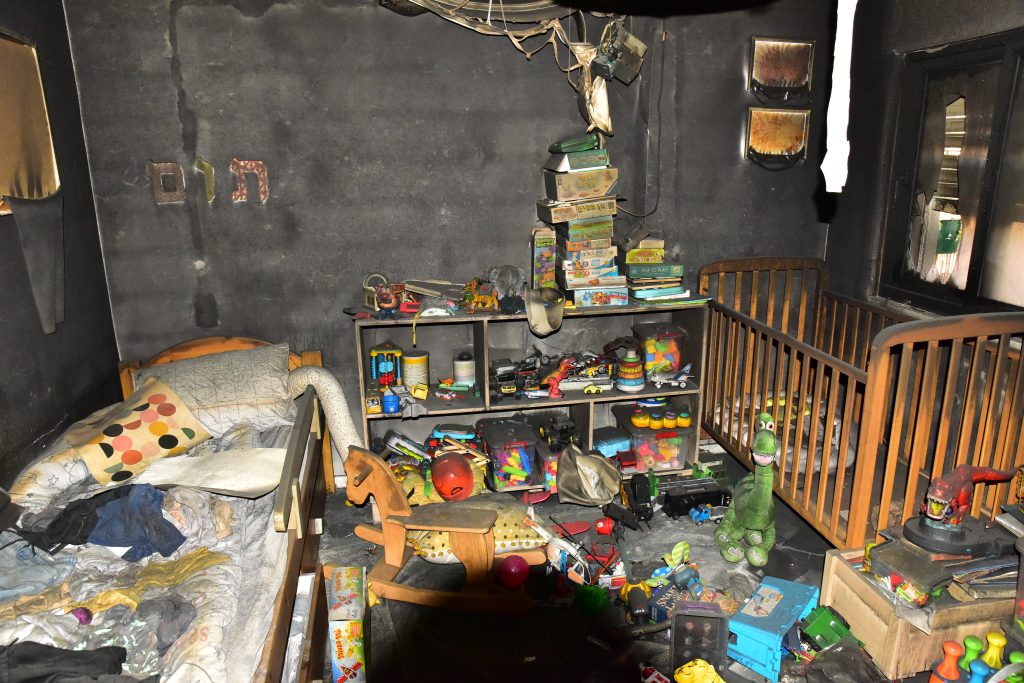
The kibbutz, renowned for its strong communal ties and resilience, has been severely impacted.
She explained how they had to create temporary arrangements in another kibbutz, including renovating homes and setting up kindergartens and offices.
Despite these efforts, about two-thirds of the community remained dispersed.
“The state wasn’t organised in the first two weeks, so we had to care for ourselves and our people,” she explained.
The community had maintained contact and worked tirelessly to sustain their sense of togetherness, she explained.
Ms Weinberg, who visits the kibbutz daily despite her damaged home, expressed hope for rebuilding and healing.
“We know how to deal with war, but this has been different. It’s devastating, but we are doing all we can to stay strong,” she said.
She urged the international community to aid their efforts in rebuilding their community, which they had inhabited since January 1943.
GNA